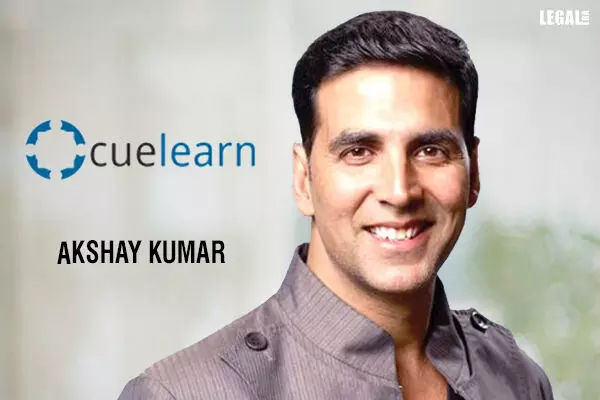- Home
- News
- Articles+
- Aerospace
- Artificial Intelligence
- Agriculture
- Alternate Dispute Resolution
- Arbitration & Mediation
- Banking and Finance
- Bankruptcy
- Book Review
- Bribery & Corruption
- Commercial Litigation
- Competition Law
- Conference Reports
- Consumer Products
- Contract
- Corporate Governance
- Corporate Law
- Covid-19
- Cryptocurrency
- Cybersecurity
- Data Protection
- Defence
- Digital Economy
- E-commerce
- Employment Law
- Energy and Natural Resources
- Entertainment and Sports Law
- Environmental Law
- Environmental, Social, and Governance
- Foreign Direct Investment
- Food and Beverage
- Gaming
- Health Care
- IBC Diaries
- In Focus
- Inclusion & Diversity
- Insurance Law
- Intellectual Property
- International Law
- IP & Tech Era
- Know the Law
- Labour Laws
- Law & Policy and Regulation
- Litigation
- Litigation Funding
- Manufacturing
- Mergers & Acquisitions
- NFTs
- Privacy
- Private Equity
- Project Finance
- Real Estate
- Risk and Compliance
- Student Corner
- Take On Board
- Tax
- Technology Media and Telecom
- Tributes
- Viewpoint
- Zoom In
- Law Firms
- In-House
- Rankings
- E-Magazine
- Legal Era TV
- Events
- Middle East
- Africa
- News
- Articles
- Aerospace
- Artificial Intelligence
- Agriculture
- Alternate Dispute Resolution
- Arbitration & Mediation
- Banking and Finance
- Bankruptcy
- Book Review
- Bribery & Corruption
- Commercial Litigation
- Competition Law
- Conference Reports
- Consumer Products
- Contract
- Corporate Governance
- Corporate Law
- Covid-19
- Cryptocurrency
- Cybersecurity
- Data Protection
- Defence
- Digital Economy
- E-commerce
- Employment Law
- Energy and Natural Resources
- Entertainment and Sports Law
- Environmental Law
- Environmental, Social, and Governance
- Foreign Direct Investment
- Food and Beverage
- Gaming
- Health Care
- IBC Diaries
- In Focus
- Inclusion & Diversity
- Insurance Law
- Intellectual Property
- International Law
- IP & Tech Era
- Know the Law
- Labour Laws
- Law & Policy and Regulation
- Litigation
- Litigation Funding
- Manufacturing
- Mergers & Acquisitions
- NFTs
- Privacy
- Private Equity
- Project Finance
- Real Estate
- Risk and Compliance
- Student Corner
- Take On Board
- Tax
- Technology Media and Telecom
- Tributes
- Viewpoint
- Zoom In
- Law Firms
- In-House
- Rankings
- E-Magazine
- Legal Era TV
- Events
- Middle East
- Africa
NCLT Dismisses Akshay Kumar's Insolvency Petition Against Cue Learn

NCLT Dismisses Akshay Kumar's Insolvency Petition Against Cue Learn
The National Company Law Tribunal (NCLT) has dismissed Bollywood actor Akshay Kumar's petition to initiate insolvency proceedings against ed-tech company Cue Learn Private Limited.
The NCLT bench, comprising Judicial Member MS Shanmuga Sundaram and Technical Member Dr. Sanjeev Ranjan, ruled that Kumar's claim was based on outstanding payments under a contract, which did not qualify as operational debt under the Insolvency and Bankruptcy Code (IBC).
The tribunal emphasized that the essence of the IBC is to resolve insolvency matters through a process-driven approach, and any deviation from its prescribed scope would undermine the legislative intent of the Code.
The dispute arose from an endorsement agreement signed between Kumar and Cue Learn in March 2021. According to the agreement, Kumar was to provide endorsement services for Cue Learn's website in exchange for a total payment of ₹8.10 crore, split into two tranches: ₹4.05 crore upon signing and the remaining ₹4.05 crore plus GST before the second endorsement day.
Kumar alleged that Cue Learn failed to make the second payment despite fulfilling his obligations for the first endorsement day. He argued that the outstanding amount constituted operational debt, thereby triggering insolvency proceedings under the IBC.
Cue Learn, however, contended that the second payment was contingent on Kumar's availability for a mutually agreed second endorsement day. The company further argued that Kumar did not propose any dates for the second day, breaching the contract and negating his claim for the remaining payment.
The NCLT noted that Kumar’s obligation to render services on the second day was conditional upon receiving full payment, which he had not received. The tribunal further observed that any claim arising from the alleged breach of contract would be considered liquidated damages, not operational debt under the IBC.
The tribunal also highlighted the lack of documentary evidence to support Kumar’s claim, noting that the necessary preconditions for rendering services on the second endorsement day were not met. As such, the NCLT ruled that the dispute was a contractual matter and not a matter for insolvency proceedings.
Ultimately, the tribunal dismissed Kumar's petition to initiate insolvency proceedings against Cue Learn.



